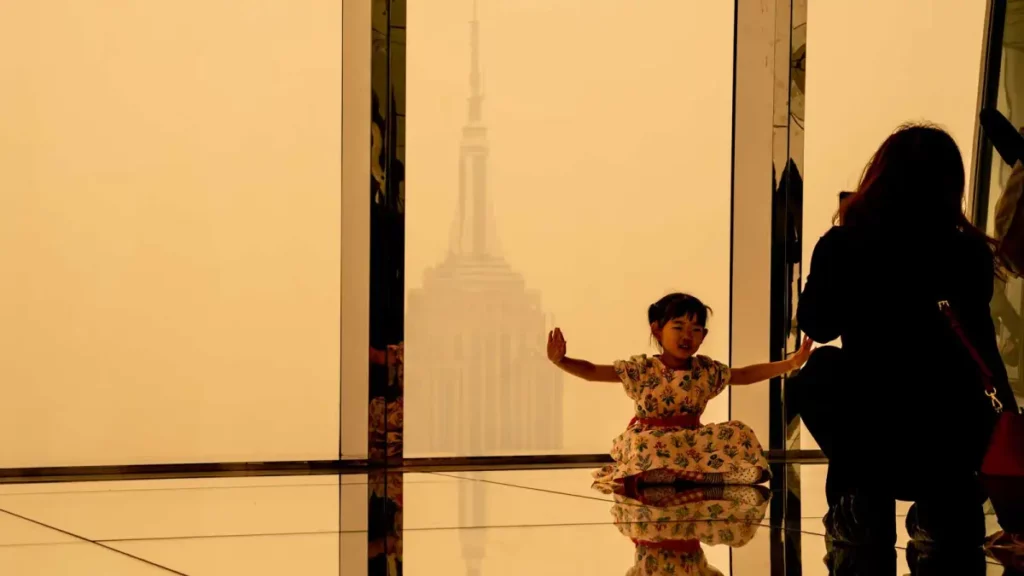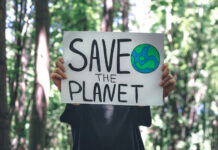From Yale Climate Connections comes this story by Neha Pathak on the impact of climate change on children’s physical and mental wellbeing and how parents might respond, using information from a new book on the topic by Frederica Perera:
“The fondest times of my childhood were the annual burst of flowers each spring. Not so for my kids, who sniffle and sneeze their way through pollen season.
With average temperatures growing warmer, trees here in Atlanta are flowering earlier in the year, blooming longer, and releasing more pollen than when I was a kid.
That’s led to what I have dubbed FOGO — “Fear of Going Outside” — for my children.
They live with weeks of nasal congestion, sleepless nights, tears, frustration, missed days of school, poor performance on spring tests, and this year, a refusal to go outside during school — almost an entire month of school recesses spent sitting inside alone with a teacher instead of playing outside with classmates….
For friends in New York City, smoke from massive Canadian wildfires recently added yet another climate threat, with clearly visible evidence of risk from hazy air pollution.
And friends in Texas have been sweltering under a weekslong record heat wave, making outdoor time oppressive for their kids. . . .
From the earliest moments of life, climate change can have a major impact on health. Before a fetus is born, extreme temperatures increase the risk of premature birth. In later years, heat can affect a child’s ability to learn and increases the risk for mental health conditions.
Climate change degrades air quality through a variety of pathways — by lengthening and intensifying allergy seasons and increasing the frequency of wildfires with massive smoke plumes, for example.
And a host of factors increase the risk of climate-related environmental impacts on the health of children, Perera says.”
***
More from Around the Web
More from Mad in the Family















